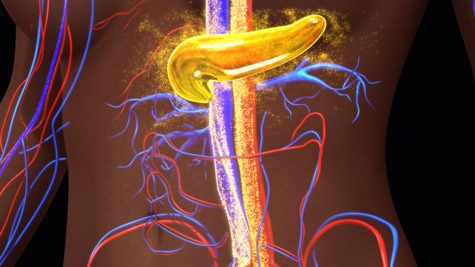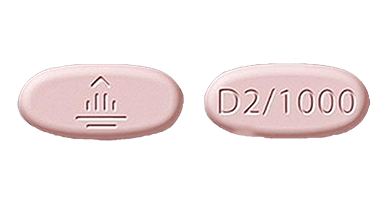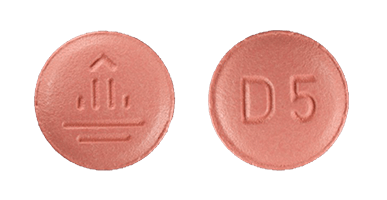Tradjenta & Jentadueto
The drugs Tradjenta and Jentadueto, which are used to treat Type 2 diabetes, help lower blood sugar by stimulating the production of the hormone insulin. But both have been linked to an increased risk of pancreatitis and possibly pancreatic cancer.
Tradjenta and Jentadueto are two drugs used separately in the treatment of Type 2 diabetes, along with diet and exercise. Both medicines are manufactured by Eli Lilly and Boehringer Ingelheim, and they belong to a class of drugs called incretin mimetics.
These diabetes medications both contain the active ingredient linagliptin, which belongs to the dipeptidyl peptidase-4 (DPP-4) inhibitor class of drugs. DPP-4 is a naturally occurring enzyme that removes a hormone in the body called incretin that tells the body to release insulin after a meal. When DPP-4 inhibitors like linagliptin stop DPP-4 from removing incretin, insulin levels are increased in patients with diabetes who have trouble producing enough insulin or whose bodies cannot use it effectively. In addition to linagliptin, Jentadueto also contains metformin, a drug commonly used to treat Type 2 diabetes.
Tradjenta was approved by the U.S. Food and Drug Administration (FDA) in 2011, and Jentadueto later received FDA approval in 2012. However, metformin has been associated with lactic acidosis, which can result in low blood pressure, reduced body temperature, a slow heart rate and sometimes death. Therefore, Jentadueto contains a black box warning to advise patients of this potential risk.
Then in 2013, the FDA began a review of unpublished findings regarding a potential increase in patients’ risk for pancreatitis (inflammation of the pancreas) that might be caused by DPP-4 drugs like Tradjenta and Jentadueto. Pancreatitis happens when digestive enzymes start to digest the pancreas itself. Pancreatitis is a serious condition that requires emergency medical treatment and can lead to permanent damage. As a part of its review, the FDA also began investigating the potential for precancerous cell changes that can develop further into pancreatic cancer, also linked to the use of drugs such as Tradjenta and Jentadueto.
What is Diabetes?
Diabetes is a group of diseases that are considered chronic in nature, meaning they last 1 year or longer and they require ongoing medical care and/or limit daily activities. Diabetes results in high blood glucose, more commonly known as high blood sugar, or clinically known as hyperglycemia. Diabetes is a disorder of metabolism, or the way the body uses digested food for energy, in that the body cannot regulate the amount of sugar in the blood.
In 2017, the Centers for Disease Control and Prevention (CDC) reported that 30.3 million people in the U.S., or just over 9 percent of the population, have diabetes. However, 24 percent of individuals are not aware they have the disease. Approximately 84 million Americans 18 years of age and older in 2022 have prediabetes, meaning they have higher than normal blood sugar levels but not high enough yet to be considered Type 2 diabetes. Over time, having high levels of blood sugar can cause serious health complications, such as heart disease, stroke, nerve damage, loss of limbs, eye problems and kidney disease.
Causes and Types of Diabetes
Insulin is a hormone produced in the pancreas (a glandular organ in the digestive and endocrine systems) by special cells called beta cells that assist in the absorption of glucose into cells throughout the body for energy. When the body fails to make enough insulin, cannot use it effectively, or both, diabetes develops.

In Type 1 diabetes, the body stops producing insulin because the beta cells stop working, requiring daily injections of insulin. This condition can occur at any age but is most often diagnosed in children, teens and young adults. The exact cause of Type 1 diabetes is unknown.
In the more common type of diabetes, referred to as Type 2 diabetes, the body doesn’t make enough insulin, is resistant to insulin or does not use it effectively. Without an adequate supply of insulin or the ability to use it properly, glucose remains in the blood. This condition most often occurs in adulthood, but due to high obesity rates, children and teens are developing Type 2 diabetes as well. Some people with Type 2 diabetes are unaware they even have it.
Most people diagnosed with Type 2 diabetes are overweight or obese, but thin people can also develop the disease, more commonly in late adulthood. Risk factors include family history, low activity levels, poor diet and excess body fat around the waist.
Symptoms of Type 2 Diabetes
Many people with Type 2 diabetes have no symptoms in the beginning of the disease. Symptoms may take years to occur due to the slow development of the condition. Early symptoms of Type 2 diabetes are a result of high levels of glucose in the blood.
The early symptoms of diabetes include:
- Bladder, kidney, skin or other infections that are more frequent or slow to heal
- Fatigue
- Hunger
- Increased thirst
- Increased urination
- Blurred vision
As the disease progresses, and without proper treatment and management, diabetes can lead to serious health problems that all have their own additional accompanying symptoms.
Linagliptin: What Is It and How Is It Used?
Linagliptin belongs to a class of medications called dipeptidyl peptidase-4 (DPP-4) inhibitors. It is marketed under the brand name Tradjenta. Other combination drugs containing linagliptin as well as other active ingredients include Glyxambi (linagliptin and empagliflozin) and Jentadueto (linagliptin and metformin).
Linagliptin is used along with diet and exercise, and sometimes in conjunction with other medications, to lower blood sugar levels in patients with Type 2 diabetes (a condition in which blood sugar is too high because the body does not produce or use insulin normally). Linagliptin works by increasing certain natural substances present in the body that lower blood sugar when it is high.
Linagliptin comes in a tablet form taken by mouth. It helps to control high blood sugar in Type 2 diabetes, but does not cure it. However, it is not used to treat Type 1 diabetes (a condition in which the body does not produce insulin and therefore, cannot control the amount of sugar in the blood) or diabetic ketoacidosis (a serious condition that may develop if high blood sugar is not treated).
Dosages and Administration of Linagliptin
Tradjenta (linagliptin) comes in a 5-milligram tablet form that is taken by mouth once daily. The tablets are light red, round and film-coated. When used in combination with pills that improve insulin release (secretagogues) or with insulin, a lower dose of these accompanying medications may be required to reduce the risk of low blood sugar, or hypoglycemia.


Jentadueto (linagliptin and metformin) dosages should be individualized for effectiveness and tolerability, but should not exceed the maximum recommended combined dose of 2.5 milligrams of linagliptin and 1,000 milligrams metformin hydrochloride twice daily. In patients currently not treated with metformin, dosing should be started at 2.5 milligrams linagliptin and 500 milligrams metformin hydrochloride taken twice daily.
Doses of Jentadueto should be taken with meals and any increases in dosing should be gradual to reduce the gastrointestinal (GI) side effects associated with the use of metformin. Caution in dosing and regular assessments of renal (pertaining to the kidney) function should be carried out in patients with renal impairment. Jentadueto is not recommended in patients with an estimated glomerular filtration rate, or eGFR (a measure of renal function) below 30 mL/min.
Additionally, certain patients undergoing contrast dye imaging procedures should discontinue use of Jentadueto prior to, or at the time of, testing.
Side Effects of Tradjenta and Jentadueto (Linagliptin)
The use of diabetic medications containing linagliptin can result in changes to a patient’s blood sugar, including low blood sugar (or hypoglycemia). This side effect is especially likely when taking Tradjenta or Jentadueto with another diabetes medicine that can cause low blood sugar, such as insulin.
- Headache
- Drowsiness
- Irritability
- Hunger
- Confusion
- Weakness
- Fast heart beat
- Dizziness
- Sweating
- Feeling Jittery
Other serious side effects of Jentadueto include lactic acidosis (abnormally high levels of lactic acid in the blood) and pancreatitis (inflammation of the pancreas). Jentadueto contains metformin, which might cause lactic acidosis, and linagliptin, which might cause pancreatitis. Tradjenta contains only linagliptin, and therefore might cause pancreatitis. Pancreatitis can be severe and even result in death. Severe stomach pain that will not go away, and that possibly radiates through the patient’s back, may be a symptom of pancreatitis. The pain can be experienced with or without vomiting.
- Headache
- Joint pain
- Skin reaction
- Stuffy or runny nose
- Sore throat
- Diarrhea
- Allergic (hypersensitivity) reactions
Black Box Warning: Lactic Acidosis
The prescription diabetic medication Jentadueto includes a black box warning describing reports of lactic acidosis. Lactic acidosis is a condition that occurs when too much acid builds up in the blood, and results in an excessively low pH. Lactic acidosis may be associated with the use of metformin. The black box warning for lactic acidosis advises patients to discontinue use of Jentadueto and seek immediate medical attention, such as visiting an emergency room. Measures such as hemodialysis may be required to promptly remove metformin from the blood.
According to the Jentadueto label, “the onset of metformin-associated lactic acidosis is often subtle.” Some “nonspecific symptoms” of the condition include a feeling of general discomfort or illness, muscle pain, respiratory problems, drowsiness and abdominal pain.
Risk factors, or conditions that put patients at greater risk for Lactic Acidosis, include:
- Kidney impairment
- Accompanying use of certain other drugs
- Being 65 years of age or older
- Having a radiological (X-ray-related) procedure performed with contrast dyes
- Surgery and other procedures
- Having conditions in which the body is hypoxic (oxygen-deprived) such as congestive heart failure
- Excessive alcohol consumption
- Liver impairment
In 2016, the U.S. Food and Drug Administration (FDA) mandated label changes for all diabetes medicines containing metformin. These changes were made to expand metformin’s use in certain patients with reduced kidney function. While prior labeling “strongly” recommended against the use of metformin in patients whose kidneys do not work properly because of the increased risk of lactic acidosis, the FDA was asked to review studies regarding its safer use in patients with mild to moderate kidney impairment.
The FDA’s review of various published studies concluded that metformin can be used safely in patients with mild kidney function impairment and in some patients with moderate kidney function impairment. The FDA also recommended that the measure of kidney function used to determine whether patients can safely receive metformin be changed from a single laboratory parameter, such as concentrations of blood creatinine (a compound used to measure kidney function), to one that “provides a better estimate of kidney function in patients with kidney disease,” such as the glomerular filtration rate estimating equation, or eGFR for short. The eGFR measurement describes the flow rate of filtered fluid through the kidney.
Jentadueto and Tradjenta’s Drug Interactions
Drug interactions occur when a substance (often another drug) affects the activity of another drug when both are taken together. When taking Jentadueto or Tradjenta, patients should do research and talk to their doctors before taking other medications. Certain drugs taken simultaneously with medications that contain linagliptin may increase a patient’s risk for side effects and other adverse reactions.
- Glaucoma Treatments
- Carbonic anhydrase inhibitors (used for the treatment of glaucoma), drugs that reduce the body’s ability to eliminate metformin (such as ranolazine and cimetidine) and alcohol taken with Jentadueto can all increase a patient’s risk for acquiring lactic acidosis.
- Antibiotics
- Rifampin, an antibiotic used to treat several different types of bacterial infections, can decrease the amount of linagliptin in the body when it is taken concurrently with Tradjenta or Jentadueto. Tradjenta and Jentadueto may therefore be less effective when they are taken with rifampin.
- Insulin or Insulin Secretagogues
- The doses of insulin or insulin secretagogues (medicines that increase insulin secretion by the beta cells in the pancreas, such as sulfonylureas) may need to be reduced if they are taken with Tradjenta or Jentadueto in order to reduce the risk of hypoglycemia. Other drugs may affect glycemic control (blood sugar), and patients taking these drugs with Jentadueto should be regularly monitored to keep their blood sugar levels under control.
Drugs affecting Glycemic control include:
- Thiazides or other diuretics
- Corticosteroids
- Phenothiazines (used to treat serious mental and emotional disorders)
- Thyroid products
- Estrogens and oral contraceptives (birth control bill)
- Phenytoin (anti-epilepsy drug)
- Nicotinic acid (brand name Niacin, to lower cholesterol)
- Sympathomimetics (used to treat cardiac arrest and low blood pressure)
- Calcium channel-blocking drugs
- Isoniazid (an antibiotic used to treat tuberculosis)
Jentadueto and Tradjenta’s Contraindications
A contraindication is a condition that makes a particular treatment or procedure potentially inadvisable or improper due to the harm that could result to the patient.
Jentadueto is contraindicated, or not advised for use, in patients with the following conditions:
- Severe kidney impairment
- Acute or chronic metabolic acidosis, including diabetic ketoacidosis (a potentially life-threatening complication of diabetes)
- History of hypersensitivity (allergic reaction) to linagliptin, such as anaphylaxis (a potentially life-threatening allergic reaction), swelling in the face, tongue, throat, abdomen, arms or legs, problems with the airways, or hives
- Hypersensitivity to metformin
- Tradjenta is not recommended for use in patients who have a history of an allergic reaction to linagliptin
Limited data exists as to the safety or associated risks with the use of Tradjenta and Jentadueto during pregnancy. However, there are risks to a mother and fetus associated with poorly controlled diabetes in pregnancy including birth defects that can occur during the early weeks of development, sometimes before a woman even knows she’s pregnant, according to the National Institutes of Health (NIH).
While there is no information regarding the presence of linagliptin in human milk, the effects on breastfed infants or the effects on milk production, linagliptin was found in studies to be present in rat milk.
Potential for Tradjenta & Jentadueto Lawsuits
Legal experts believe that if the FDA’s review results in confirmation that incretin mimetics, such as Tradjenta and Jentadueto, lead to pancreatic cancer, or if more reports surface linking the diabetes drugs to pancreatitis or pancreatic cancer, it is likely that Eli Lilly and Boehringer Ingelheim will be facing lawsuits from injured patients and/or their family members.
Manufacturers of medications within the same class of anti-diabetic drugs, including Januvia, Victoza, Janumet and Byetta, are already facing lawsuits, with a multidistrict litigation (MDL) formed in August 2013 in the Southern District of California, to centralize 53 actions (at that time) pending in seven varying districts across the United States.

While the U.S. Judicial Panel on Multidistrict Litigation (JPML) said it is “typically hesitant to centralize litigation against multiple, competing defendants (manufacturers) which marketed, manufactured and sold similar products… Plaintiffs in the cases now… make highly similar allegations about each of the four drugs that manage blood insulin levels and the propensity of those drugs to cause pancreatic cancer.”
These cases are consolidated as actions filed under products liability law. This type of law refers to the liability and duty of the manufacturer and sellers of a product to ensure that it is safe and “free from any unexpected dangers or defects,” as defined by Thomson Reuters. Any defects that are later determined and result in injury to a plaintiff can be potential grounds for a products liability suit.
According to Cornell University Law School Legal Information Institute (LII), products liability is generally considered a “strict liability offense,” meaning claims are not dependent upon the “degree of carefulness by the defendant.” In other words, it typically doesn’t matter if the manufacturer took “great care” in the making of the product; if a defect is found and it causes harm, the defendant can be liable.
A possible claim for patients injured by Tradjenta or Jentadueto treatments would be a defect in the companies’ warnings where the use of the diabetes drugs may be found to result in pancreatic cancer. Manufacturers have a duty to warn about these potential dangers so patients can make informed decisions prior to taking various medications, and the failure to do so can result in lawsuits.
Calling this number connects you with a Drugwatch.com representative. We will direct you to one of our trusted legal partners for a free case review.
Drugwatch.com's trusted legal partners support the organization's mission to keep people safe from dangerous drugs and medical devices. For more information, visit our partners page.


